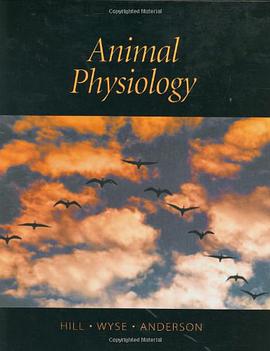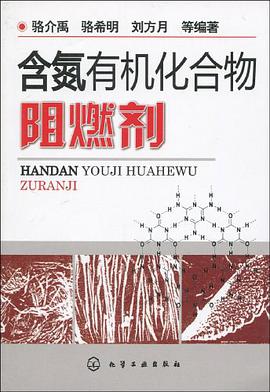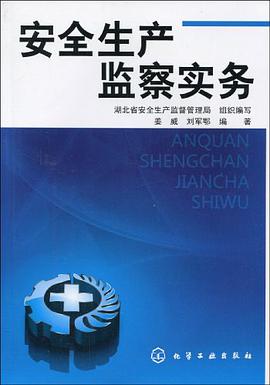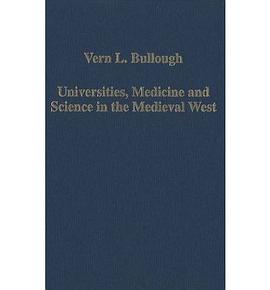

具体描述
Animal Physiology presents all the branches of modern animal physiology with a strong emphasis on integration among physiological disciplines, ecology, and evolutionary biology. The book takes an entirely fresh approach to each topic. Its full colour illustration program includes many novel, visually effective features to help students learn. Each of the 28 chapters starts with a brief animal example to engage student interest and demonstrate the value of the material that will be learned. The book includes five entire chapters that apply students' newfound physiological knowledge to curiosity provoking and important topics, including diving by marine mammals, the mechanisms of navigation, and training/disuse effects in muscle. The book is committed to a comparative approach throughout. While mammalian physiology is consistently treated in depth, emphasis is also given to the other vertebrate groups, arthropods, molluscs, and as appropriate additional invertebrates. Concepts and integrative themes are emphasized while giving students the specifics they need. The whole animal is the principal focus of this book. The pages are filled with information on everything from knockout mice and enzyme chemistry to traditional organ physiology, phylogenetic analysis, and applications to human affairs. Always, the central organizing principle for the array of topics presented is to understand whole animals in the environments where they live. Concepts from chemistry, physics, and mathematics are explained so the book will be accessible to science students at the sophomore or higher level. Neurophysiological principles are developed clearly and carefully, to help students understand important concepts in sufficient depth without being overwhelming. Pedagogical aids include embedded summaries throughout chapters, lists of key terms, study questions, partially annotated reference lists, an extensive glossary, and appendices on topics such as units of measure and logarithms. For all three authors, teaching physiology to undergraduate students has been a lifelong priority. The opening three chapters provide background material on physiological basics, cell molecular concepts, transport of solutes and water, ecology, and evolutionary biology. The remaining chapters are organized into five sections: Food, Energy, and Temperature Integrating Systems Muscle and Movement Oxygen, Carbon Dioxide, and Internal Transport Water, Salts, and Excretion
作者简介
Richard W. Hill is Professor in the Department of Zoology at Michigan State University and a frequent Guest Investigator at Woods Hole Oceanographic Institution. He received his Ph.D. in Zoology from the University of Michigan. Apart from Sinauer Associates' editions of "Animal Physiology", Dr. Hill has authored two other books on the subject (the second with Gordon Wyse), as well as numerous articles for scientific journals, encyclopedias, and edited volumes. Among the awards he has received are the Outstanding Faculty Award (Michigan State University Senior Class Council) and election as Fellow of the American Association for the Advancement of Science. He was a U.S. Senior Fulbright Scholar in 2000-2001. His research interests include: temperature regulation and energetics in birds and mammals, especially neonates; and environmental physiology of marine tertiary sulfonium and quaternary ammonium compounds, especially in the contexts of biogeochemistry and animal-algal symbioses.
Gordon A. Wyse is Professor of Biology Emeritus and Lecturer at the University of Massachusetts, Amherst. He completed his Ph.D. at the University of Michigan, then did postdoctoral and sabbatical work at Stanford University and Harvard Medical School. Dr. Wyse helped found the graduate program in Neuroscience and Behavior at UMass Amherst. He has served on the Editorial Board of "Advances in Physiology Education" and as Associate Dean of Natural Sciences and Mathematics. His research interests include the neural control of feeding behavior and other behavior patterns.
Margaret Anderson is Professor of Biological Sciences at Smith College. After completing her Ph.D. at Stanford University, she undertook postdoctoral studies at the Universidad Cat#lica de Chile, Harvard University, and the University of Puerto Rico. At Smith, Dr. Anderson has served as an Academic Dean, Director of the Program in Neuroscience, and premedical advisor. She is one of six founding members of the Consortium of Medical Schools and Women's Colleges, and she contributes to several efforts that encourage women and minorities in the sciences. Her research interests include the functional properties of excitable cells.
目录信息
读后感
评分
评分
评分
评分
用户评价
这本书在知识的深度和广度上都令人印象深刻。它不仅仅是简单地罗列各种动物的生理特征,而是深入剖析了这些特征背后的进化驱动力和生态意义。例如,在讨论消化系统时,作者不仅仅介绍了不同动物的消化道结构,还详细解释了不同食物来源(如草食、肉食、杂食)如何影响消化道的长度、酶的种类以及微生物群落的组成。更让我惊叹的是,书中还探讨了食物获取策略与消化效率之间的权衡,以及这些生理适应如何影响动物的栖息地选择和行为模式。这种将生理学与生态学、进化生物学紧密结合的视角,让我能够跳出单一的学科框架,从更宏观的角度去理解动物生理的复杂性和多样性。我尤其喜欢书中对“取舍”(trade-offs)概念的强调,它揭示了生物体在进化过程中,为了适应特定的环境和生存压力,往往需要在某些方面做出妥协,而这种妥协又造就了令人惊叹的生理多样性。
评分说实话,我刚开始拿到这本书的时候,并没有抱太高的期望,毕竟“动物生理学”这个主题听起来就有些枯燥乏味,像是高中生物的延伸,充满了各种专业术语和复杂的生理过程。然而,这本书却给了我一个大大的惊喜。作者的叙述方式非常生动有趣,仿佛在和一个经验丰富的向导一起探索奇妙的动物王国。他没有直接抛出那些晦涩难懂的定义,而是通过一个个生动的例子,将抽象的生理概念具体化。比如,在讲解呼吸系统时,他没有仅仅罗列肺泡的结构和气体交换的原理,而是描绘了鱼类如何在水中呼吸,鸟类如何进行高效的双重呼吸,甚至还提到了某些昆虫是如何通过气管直接向细胞输送氧气的。这种对比和延展,让我对不同动物在适应环境过程中演化出的独特生理机制有了更深刻的理解。而且,作者的语言风格非常接地气,时常穿插一些幽默的段子,让阅读过程轻松愉快,一点也不会感到疲惫。
评分这本书为我提供了一个全新的视角来理解动物行为。我以前总觉得动物的行为是本能驱动的,但这本书让我意识到,许多行为模式其实与动物自身的生理条件息息相关。比如,在讲解内分泌系统时,作者不仅介绍了激素的作用,还联系了性行为、繁殖策略、迁徙以及昼夜节律等。我突然明白,为什么有些动物在特定季节会变得异常活跃,为什么有些动物的求偶行为如此复杂,以及为什么有些动物能够忍受极端的环境而生存。这本书就像一把钥匙,打开了我对动物世界背后“为什么”的好奇心。它让我开始思考,那些我习以为常的动物行为,背后究竟隐藏着怎样的生理奥秘。而且,书中对神经系统和感觉器官的介绍,也让我对动物如何感知世界、如何做出反应有了更深入的认识,这为我理解它们独特的行为提供了坚实的生理基础。
评分这本书的装帧真的不错,纸张厚实,印刷清晰,拿在手里很有质感。封面设计也非常吸引人,色彩搭配和插图都恰到好处,让人一眼就觉得内容会很丰富。我之前也翻阅过一些同类书籍,但通常要么太过学术化,要么内容过于浅显,很难找到一个平衡点。这本书的排版和章节划分也让我眼前一亮,逻辑性很强,过渡自然,即使是初学者也能轻松找到自己想要了解的部分。我特别欣赏它在细节上的用心,比如每章开头都有一个引人入胜的小故事或者一个有趣的事实,瞬间就能抓住读者的注意力,让他们对即将深入探讨的内容产生浓厚的兴趣。而且,书中的图表和插画质量非常高,不仅美观,而且能够清晰地解释复杂的概念,大大降低了理解的难度。整体而言,这本书在视觉呈现和阅读体验上都做得非常出色,这对于一本旨在传播知识的书籍来说,绝对是一个加分项。我甚至觉得,单凭这精心制作的实体,就已经值回票价了,更不用说其中可能蕴含的丰富内容了。
评分这本书最让我印象深刻的是它所传递的一种科学的严谨性和探索精神。作者在引用文献、提出观点时都显得非常谨慎和客观,不会轻易下定论,而是鼓励读者自己去思考和探索。书中常常会设置一些“思考题”或者“研究方向”,引导我们去进一步探究那些尚未完全解答的科学谜题。这让我觉得,这本书不仅仅是一本知识的载体,更是一种科学方法的启蒙。它教会我如何带着批判性思维去阅读科学文献,如何从数据中寻找证据,以及如何尊重科学研究的局限性。我非常赞赏作者这种开放式的教学态度,它让我感受到,科学研究是一个不断发展和完善的过程,充满了未知和挑战,但也正是这种未知和挑战,驱动着人类不断前进。读完这本书,我不仅学到了很多关于动物生理学的知识,更重要的是,我被激发了一种对科学探索的浓厚兴趣和持久的热情。
评分 评分 评分 评分 评分相关图书
本站所有内容均为互联网搜索引擎提供的公开搜索信息,本站不存储任何数据与内容,任何内容与数据均与本站无关,如有需要请联系相关搜索引擎包括但不限于百度,google,bing,sogou 等
© 2026 book.quotespace.org All Rights Reserved. 小美书屋 版权所有




















